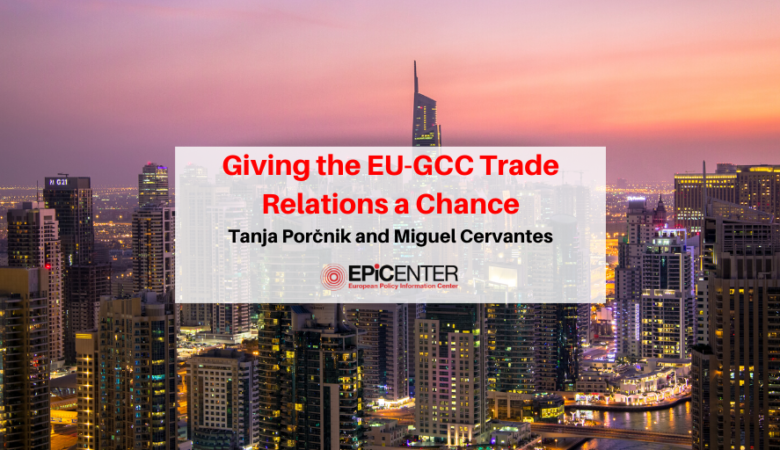Oman started 2020 off on the right foot when it comes to economic freedom. Only a few days before Sultan Qaboos passed away on January 10, a new Foreign Capital Investment Law (FCIL) came into force to visibly lower barriers to foreign investment in the Sultanate. The crucial change is that 100% foreign ownership is now possible in Oman.
Why is this institutional change in Oman important to the EU? And more broadly, is the EU missing out on the opportunities to intensify its trade and investment with the region in the absence of an EU-GCC free trade agreement that failed a decade ago?
Trade is essential for improving the lives of people. It contributes to economic growth and job creation, but it also lifts people out of poverty, helps to increase their incomes, and improves their living standards. As a result of trade, countries specialize in their most productive sectors, achieve economies of scale, and adopt the most innovative business models.
Given the benefits accruing from free trade, the EU, which is the world’s largest economy and its largest trading bloc, should continue to emphasize scaling back its own trade barriers.
In doing so, it will become easier and cheaper for European companies to produce, buy, and sell goods around the world, which will sooner or later lead to higher disposable income per household.
A good place for the EU to start would be with the Gulf region.
Currently, the Gulf Cooperation Council (GCC) member countries (Bahrain, Kuwait, Oman, Qatar, Saudi Arabia, and the United Arab Emirates) represent the EU’s fourth-largest export market, while the EU is the largest trading partner of the GCC.
The latest numbers show a significant trade surplus for the EU. Indeed, EU-GCC total trade in goods in 2017 amounted to EUR 143.7 billion. Of this, EU exports to the GCC amounted to EUR 99.8 billion and EU imports from the GCC accounted for EUR 43.8 billion.
This year is a great opportunity to restart negotiations over an EU-GCC Free Trade Agreement (FTA). Since previous negotiations between the EU and the GCC collapsed in 2009, plenty has changed in the Gulf region.
The Fraser Institute’s Economic Freedom of the Arab World index, which provides a quantitative assessment of the degree of economic liberalism, ranks the 22 countries of the Arab league in terms of economic freedom.
In the report, the United Arab Emirates and Bahrain share second place, Qatar and Oman share fifth place, Kuwait ranks eight, and Saudi Arabia ninth.
According to the report, the GCC countries observe high scores for low barriers to international trade. This is reflected in average external tariff rates of 4.8%, for their low variability of tariff rates, and for having low regulatory trade barriers measured by the efficiency of the clearance processes by border control agencies.
The report also finds that the UAE, Bahrain, Kuwait, Qatar, Oman, and Saudi Arabia do not have a personal income tax. On the other hand, in the Gulf countries, the state has a sizable role in the economies and societies through state-owned enterprises and the welfare state.
Clearly, an EU-GCC free trade agreement would enhance bilateral economic cooperation and increase two-way trade flows. It would also combine the whole GCC into one investment agreement. Currently, each GCC country has several bilateral investment agreements with individual EU countries, creating the “spaghetti bowl phenomenon“.
An EU-GCC FTA could create harmonized and predictable regulations in the GCC, as well as open the service sector and the financial sector to competition. The latter is currently dominated by state-owned banks in Saudi Arabia, the UAE, and Qatar.
Increased ease of doing business and higher productivity would facilitate a competitive edge to European companies in the Gulf region.
At the same time, it would build a powerful boost to growth, incomes and lives across the EU and the GCC in the years to come.
Ideally, bilateral trade agreements should focus on trade creation, instead of trade diversion. That is, two regional markets should not only become easier to access for one another, but also become more open to the rest of the world. Indeed, an EU-GCC FTA could be a stepping stone to freer world trade.
The article was originally published at: http://www.epicenternetwork.eu/blog/giving-the-eu-gcc-trade-relations-a-chance/
Continue exploring:
The EU Should Keep Pursuing International Free Trade
EU Road Transport Quotas Limiting Trade Expansion with Ukraine



